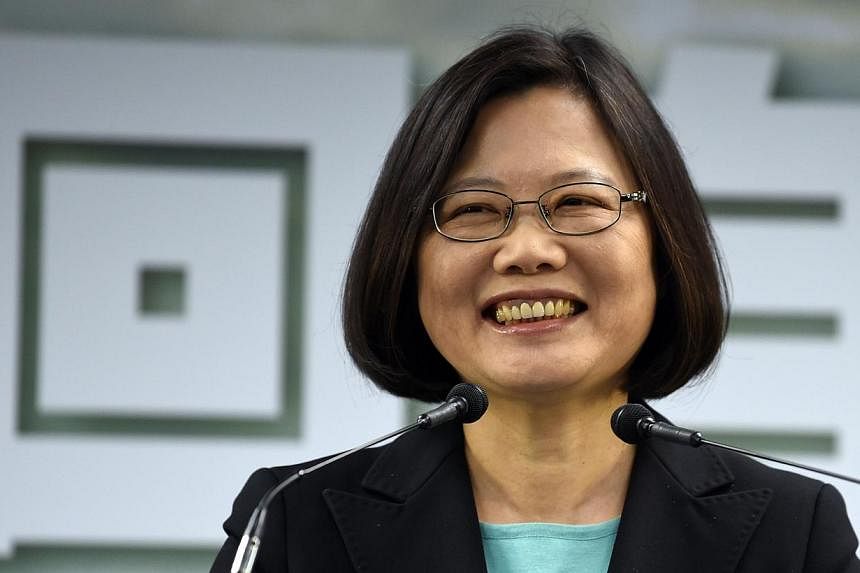TAIPEI (AFP) - Taiwan's main opposition leader plans to visit the United States at the end of this month, seeking to improve relations between her party and the island's leading ally ahead of elections in 2016.
Tsai Ing-wen, chairwoman of the Democratic Progressive Party (DPP), will begin the 12-day trip on May 29 and will meet with US government officials, congressmen and Taiwanese residents in the US.
She is also due to speak at the Centre for Strategic and International Studies, a Washington-based think-tank.
"To some extent, she will present what her vision will be about Taiwan during her speech," James Huang, a DPP spokesman, said.
China, which still regards Taiwan as part of its territory awaiting to be reunified by force if necessary since their split in 1949 at the end of a civil war, opposes any visits abroad by Taiwan officials.
Despite a lack of diplomatic ties, the United States has been the leading arms supplier to Taiwan. It sent a battle carrier group to waters near the island during the 1996-97 missile crisis in the Taiwan Strait, a clear warning to Beijing not to invade the island.
During her 2011 trip to the United States, Tsai acknowledged a "rough period" between Taiwan and the United States when the DPP was last in power.
She was referring to how then-president Chen Shui-bian irked Washington by deciding to hold a referendum in 2008 on whether the island should apply for UN membership under the name of Taiwan.
The vote failed but approval of such a referendum could have infuriated China and dragged the US into any resulting conflict.
While Tsai failed to unseat incumbent President Ma Ying-jeou in the 2012 race for the top post, recent polls have given her a strong lead for the 2016 contest.
The ruling Kuomintang has seen its popularity slump due to growing public concern over the party's warming ties with China.

